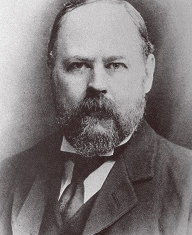LNB autoritātes
AleppID: LNC10-000118352
ViafURL: http://viaf.org/viaf/79199738
DomID: 20386 Go to Dom link Go to Dom xml data
IsniID: 0000000081592669
|
|
<ill-get-doc>
<record xmlns="http://www.loc.gov/MARC21/slim/" xmlns:xsi="http://www.w3.org/2001/XMLSchema-instance" xsi:schemaLocation="http://www.loc.gov/MARC21/slim http://www.loc.gov/standards/marcxml/schema/MARC21slim.xsd">
<leader>^^^^^nz^^a^^^^^^^n^^4500</leader>
<controlfield tag="001">LNC10-000118352</controlfield>
<controlfield tag="005">20080826132556.0</controlfield>
<controlfield tag="008">080826nn|adnnnaabn||||||||||^a|aaa||||^^</controlfield>
<datafield tag="024" ind1="7" ind2=" ">
<subfield code="a">0000000081592669</subfield>
<subfield code="2">isni</subfield>
</datafield>
<datafield tag="035" ind1=" " ind2=" ">
<subfield code="a">(VIAF)79199738</subfield>
</datafield>
<datafield tag="040" ind1=" " ind2=" ">
<subfield code="a">NLL</subfield>
<subfield code="b">lav</subfield>
</datafield>
<datafield tag="100" ind1="1" ind2=" ">
<subfield code="a">Harwood, Basil,</subfield>
<subfield code="d">1859-1949</subfield>
</datafield>
<datafield tag="670" ind1=" " ind2=" ">
<subfield code="a">The English Anthem. v. 3 [skaņu ieraksts], p1993:</subfield>
<subfield code="b">CD teksta piel. (Basil Harwood, 1859-1949)</subfield>
</datafield>
<datafield tag="670" ind1=" " ind2=" ">
<subfield code="a">Grove music online:</subfield>
<subfield code="b">(Harwood, Basil (b Woodhouse Down, Olveston, Glos., 11 April 1859; d London, 3 April 1949). English organist and composer)</subfield>
</datafield>
<datafield tag="856" ind1="4" ind2="0">
<subfield code="u">http://viaf.org/viaf/79199738</subfield>
<subfield code="y">VIAF ID</subfield>
</datafield>
<datafield tag="915" ind1="0" ind2="3">
<subfield code="a">20080826.03gabriell</subfield>
</datafield>
</record>
<session-id>YIMCDBEH9C7QN2757TAGX5M45PQJ94VQHHRQV144B3YCC24FDE</session-id>
</ill-get-doc>
Basil_Harwood

- Basil Harwood (11 April 1859 – 3 April 1949) was an organist and composer in the English church music tradition, best known today for his liturgical works, particularly his anthem O How Glorious is the Kingdom (1898) and his Service in A flat (1892), which still remain popular in English churches. He wrote numerous hymn tunes, several of which became well-known including Luckington ("Let All the World in Every Corner Sing") and Thornbury ("O Jesus I Have Promised" and "Thy hand, O God, has guided").
- Basil Harwood was born on 11 April 1859 at Woodhouse, Olveston, Gloucestershire, the youngest child of Edward Harwood (1818–1907), a banker.[1] His mother Mary, née Sturge (1840–1867), was of Quaker extraction, and Harwood was brought up in that faith until a switch to Anglicanism in 1869 following his father's second marriage.[1]
- As a boy, Harwood attended Walton Lodge preparatory school in Clevedon, followed in 1864 by Charterhouse.[1] In 1876 he won a scholarship to Trinity College, Oxford, where he was placed in the second class in classical moderations (1879) and the third in modern history (1881).[1] He took his music degree (BMus) in 1880, studying with C. W. Corfe, then the university's Choragus.[1]
- After Oxford, Harwood spent a year in Leipzig studying composition with Jadassohn and the organ with Papperitz.[1]
- Harwood's first professional position was organist of St Barnabas', Pimlico in 1883, a post he held until 1887.[2] He then served as organist at Ely Cathedral for five years, followed by a final move to Oxford in 1892 where he remained organist of Christ Church Cathedral until his retirement in 1909.[2][1]
- He became Doctor of Music (DMus) in 1896, submitting as his doctoral work a setting of Psalm 86, Inclina domine.[1]
- During his time in Oxford Harwood acted as conductor of the Oxford Orchestral Association (1892–8), and became the first conductor of the Oxford Bach Choir in 1896.[1] He held the position of Precentor of Keble College between 1892 and 1903, and was Choragus at the university from 1900 until his retirement.[2][1] He edited The Oxford Hymn Book (1908)[1] as well as acting as an Oxford examiner for several academic years between 1900 and 1915.[2]
- Harwood's musical works sit within the 'English' tradition established by Wesley, Stainer, Parry and Stanford.[1] He is best known today for his liturgical works, particularly his anthem O How Glorious is the Kingdom (1898) and his Service in A flat (1892), which still remain popular with English choirs.[1] He wrote numerous hymn tunes, several of which became well-known including Luckington ("Let All the World in Every Corner Sing"), Thornbury ("O Jesus I Have Promised" and "Thy hand, O God, has Guided"), and St Audrey ("Sing ye Faithful, Sing with Gladness").[3][1]
- He produced a number of choral works, often for church festivals, including Inclina Domine (Gloucester Festival 1898); As by the Streams of Babylon (Oxford Bach Choir 1907); Jesus, Thy Boundless Love (St Paul's Cathedral 1909); Song on May Morning (Leeds Festival 1913); Love Incarnate (Gloucester Festival 1925); Ye Choirs of New Jerusalem (Gloucester Festival 1928); and Sacrifice Triumphant (1939).[2]
- Harwood's organ style was distinctive and technically challenging.[1] He made significant contributions to the repertory of English Romantic music with works requiring considerable virtuoso technique such as Sonata no.1 in C sharp minor op.5, Dithyramb op.7, and Toccata op.49.[3] There is also full scale Concerto in D major for organ & orchestra, op. 24, composed circa 1910. His love of plainchant and hymn tunes is often evident in his organ works.[1]
- Harwood was deeply religious and was said to have had a quiet, gentle, and reserved personality.[1] On 27 December 1899 he married one of his former pupils, Mabel Ada Jennings (1871–1974). The couple had two sons, John Edward Godfrey (born 1900) and Basil Anthony (born 1903).[1] In 1909 Harwood took early retirement and returned to Gloucestershire to manage his family estate there.[3]
- In 1936 Harwood and his wife moved to London, where they remained except for some temporary absences in Bournemouth and then Shiplake during the war.[1] Harwood died on 3 April 1949 at his home, 50 Courtfield Gardens, Kensington, aged 89.[1] His ashes were interred in St Barnabas's Church, Pimlico.[1]